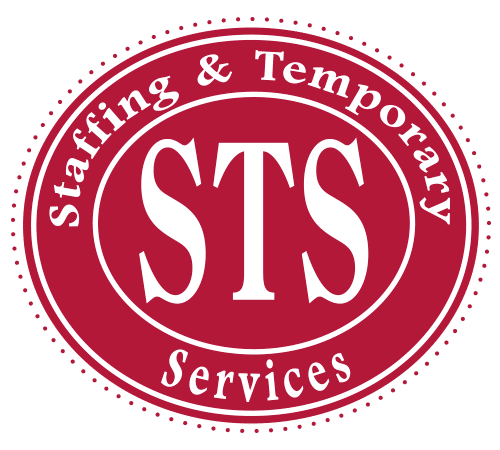Professional development has become essential for staying ahead and continuously improving our skills and performance. One of the most valuable tools for personal and professional growth is feedback. Whether positive or constructive, feedback provides valuable insights into areas of excellence and areas that need improvement. By embracing feedback, individuals can unlock opportunities for growth and strive for continuous improvement in their careers.
Don’t Let Your Ego Stand in the Way
Receiving Feedback Effectively
Receiving feedback can sometimes be challenging, as it requires open-mindedness, humility, and a willingness to learn and improve. To make the most of the feedback received, it is important to approach it with a growth mindset. This means viewing feedback as an opportunity for learning and development, rather than as criticism or a personal attack.
One effective strategy for receiving feedback is active listening. When receiving feedback, it is important to listen attentively and understand the perspectives of others. Active listening involves fully engaging with the feedback provider, maintaining eye contact, asking clarifying questions, and taking notes. By showing a genuine interest in the feedback received, individuals can demonstrate their commitment to growth and improve their ability to benefit from constructive criticism.
Another crucial aspect of receiving feedback effectively is managing emotional reactions. It is natural to feel defensive or upset when receiving negative feedback, but it is important to remain calm and composed. Taking a moment to reflect on the feedback and separating personal feelings from the objective critique can prevent emotional reactions from hindering growth. By staying open and receptive, individuals can gain valuable insights from feedback that may have otherwise been missed.
Giving Feedback Effectively
Providing effective feedback is equally important in the professional development process. When giving feedback, it is crucial to focus on specific behaviors or actions rather than making generalizations or assumptions about an individual’s character or capabilities. Constructive feedback should be specific, actionable, and focused on the observed behavior.
One strategy for giving effective feedback is the “sandwich approach.” This approach involves sandwiching constructive feedback between two layers of positive feedback. By starting and ending with positive comments, individuals can ensure that the feedback is well-received and that the constructive aspects are framed in a supportive context. This technique helps to maintain a balance and prevent the recipient from feeling demoralized or overwhelmed.
Another valuable strategy for giving feedback effectively is to use the SBI model: Situation, Behavior, Impact. This model involves describing the specific situation or context, outlining the observed behavior, and explaining the impact of that behavior. This approach allows individuals to understand the consequences of their actions and provides a clear framework for improvement. By using the SBI model, feedback providers can ensure that their feedback is focused, objective, and actionable.
Utilizing Feedback for Professional Development
Once feedback is received, the next step is to utilize it effectively for professional development. One strategy for utilizing feedback is to create an action plan. This involves identifying the areas of improvement highlighted in the feedback and setting specific goals and timelines for addressing them. By developing a clear plan of action, individuals can proactively work towards their professional development and show their commitment to growth.
Another effective way to utilize feedback is through ongoing self-reflection. Taking the time to reflect on the feedback received and understanding how it aligns with personal goals and values is crucial for meaningful growth. By regularly reflecting on feedback, individuals can gain valuable insights into their strengths, weaknesses, and opportunities for growth. This self-awareness allows them to make necessary adjustments in their behaviors and approach, ultimately leading to professional development and success.
Feedback is a Powerful Tool
By embracing feedback, individuals can gain valuable insights into their strengths and areas for improvement. Receiving feedback effectively involves active listening and managing emotional reactions while giving feedback effectively requires focusing on specific behaviors and using techniques like the sandwich approach and the SBI model. Utilizing feedback for professional development involves creating an action plan and engaging in ongoing self-reflection. By implementing these strategies, individuals can leverage feedback to enhance their skills, performance, and marketability in the talent market. Whether you are a job seeker or a manager, embracing feedback is essential for fostering a culture of growth and gaining a competitive edge in today’s job market.
STS Staffing & Temporary Services, Inc. is dedicated to matching talent with opportunities across a myriad of industries. With strategically located offices in Reno/Sparks, NV; Las Vegas, NV; Phoenix, AZ; Minneapolis, MN; and Nashville, TN, we pride ourselves on building long-term, trust-based relationships with both employers and job seekers. For over 30 years, we’ve specialized in sectors like seasonal/retail, manufacturing, warehouse, customer service, healthcare, administration, and transportation. Recognized for our meticulous screening processes, we’re committed to precision matching, ensuring a seamless fit for both parties. Our service excellence is marked by a quick turnaround, a nationwide operational footprint, and an unwavering satisfaction guarantee, all underpinned by our deep industry insights and tailored approach to staffing.




